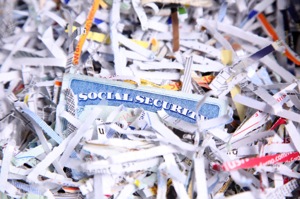Cash for Anonymity shows serious intent
![]() Paying for anonymity is a tricky thing, mostly because on-line payments are strikingly non-anonymous. The default payment mechanism on the Internet is the Credit Card, which generally requires hard identification. There are anonymous pre-paid cards, but they are getting harder to find, and most pre-paid cards are requiring registration with real name and (in the US) social security number.
Paying for anonymity is a tricky thing, mostly because on-line payments are strikingly non-anonymous. The default payment mechanism on the Internet is the Credit Card, which generally requires hard identification. There are anonymous pre-paid cards, but they are getting harder to find, and most pre-paid cards are requiring registration with real name and (in the US) social security number.
We are working on supporting Bitcoin which provides some anonymity, but not as much as you might think. New tools for Bitcoin anonymity are being developed, so this situation may improve, and other crypto currencies are gaining traction as well.
When it comes to anonymity, cash is still king. Random small US bills are truly anonymous, and widely available (1996 study showed over half of all physical US currency circulates outside the country). While non-anonymous payments only allow Anonymizer to know who its customers are, not what they are doing, that information might be sensitive and important to protect for some people.
That is why Anonymizer accepts cash payments for its services. Obviously it is slower and more cumbersome, but for those who need it, we feel it is important to provide the ultimate anonymous payment option. If you are looking at a privacy provider, even if you don’t plan to pay with cash, take a look at whether it is an option. It could tell you something about how seriously they take protecting your privacy overall.









 Turkish Prime Minister Tayyip Erdoğan announced that the courts have ordered Twitter be blocked completely.
Turkish Prime Minister Tayyip Erdoğan announced that the courts have ordered Twitter be blocked completely.


 Attorney General's new war on encrypted web services - Security - Technology - News - iTnews.com.au
Australia’s Attorney-General’s department is proposing that all providers of Internet services ensure that they can decrypt user communications when so ordered. Any services where the provider has the keys will obviously be able to do this.
Attorney General's new war on encrypted web services - Security - Technology - News - iTnews.com.au
Australia’s Attorney-General’s department is proposing that all providers of Internet services ensure that they can decrypt user communications when so ordered. Any services where the provider has the keys will obviously be able to do this.

